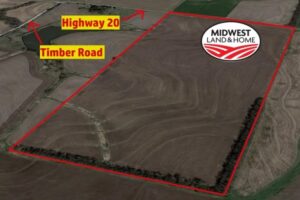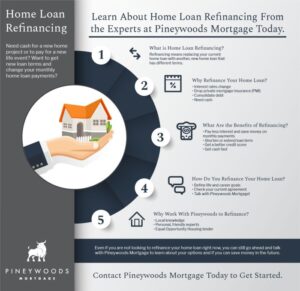
Hidden costs when buying real estate can often catch homebuyers off guard, turning the excitement of acquiring a new property into a financial headache. Understanding these costs is essential to ensure you’re fully prepared for the financial commitment of homeownership.
From unexpected closing costs and fluctuating property taxes to hidden fees associated with real estate agents, these additional expenses can add up quickly. Being aware of these factors will help you navigate the complexities of the real estate market and make informed decisions.
Hidden Costs in Real Estate Transactions

When embarking on the journey of purchasing real estate, many buyers focus primarily on the listing price, overlooking the various hidden costs that can substantially impact their financial commitment. Understanding these hidden costs is essential for making informed decisions and ensuring a smooth transaction process. This exploration delves into common hidden costs that can arise during real estate transactions, highlighting their implications on overall expenses.
Common Hidden Costs
Purchasing a home involves more than just the price tag; several additional expenses can catch buyers off guard. These hidden costs can vary widely but typically include:
- Inspection Fees: Before closing the deal, a home inspection is often necessary to uncover any underlying problems. Fees for professional inspectors can range from $300 to $500, depending on the property size and location.
- Appraisal Fees: Lenders often require an appraisal to assess the home’s value, costing around $300 to $700. This fee is usually paid upfront and may not be refundable.
- Title Insurance: Protecting against potential disputes over property ownership can incur title insurance fees, which can range from 0.5% to 1% of the purchase price.
- Homeowners Association (HOA) Fees: If the property is part of an HOA, monthly fees can add up to significant amounts, impacting your monthly budget.
Financial Implications of Closing Costs
Closing costs are a crucial aspect of the home-buying process, encompassing a range of fees that can significantly add to the total cost of purchasing real estate. Typically, closing costs can range from 2% to 5% of the home’s purchase price, depending on various factors like location and loan type. These costs cover expenses such as loan origination fees, attorney fees, and title services.
“Understanding the breakdown of closing costs can help buyers prepare financially, avoiding surprises at the closing table.”
It’s essential for buyers to ask for a detailed estimate of closing costs early in the process, as these fees can vary by lender and by state. For instance, a buyer purchasing a $300,000 home could face closing costs between $6,000 and $15,000, which can significantly affect their budget and financing plans.
Impact of Property Taxes and Homeowners Insurance
Property taxes and homeowners insurance are ongoing expenses that can influence the overall cost of homeownership. Property tax rates vary widely by location, and they are typically assessed based on the home’s value. Buyers should research local tax rates and estimate their annual property tax obligations, as these can range from 0.5% to 2.5% of the property value each year.Homeowners insurance is another essential cost to consider, providing necessary protection against disasters and liabilities.
The average cost of homeowners insurance in the U.S. is about $1,200 annually, but this can vary based on factors such as property location, coverage amount, and the home’s condition.
“Failing to account for these recurring costs can lead to financial strain and affect overall affordability.”
In summary, understanding the hidden costs associated with real estate transactions is vital for any prospective buyer. By accounting for inspection fees, closing costs, property taxes, and insurance, buyers can make more prudent financial decisions and avoid potential pitfalls down the line.
The Role of Real Estate Agents and Realtors
Real estate agents and Realtors play a crucial role in navigating the complexities of property transactions. While hiring a professional can add an extra layer of expertise and support, it often comes with associated costs that buyers should fully understand. This section delves into the commissions and potential hidden fees linked to real estate professionals, comparing the advantages of hiring a realtor versus purchasing directly from a seller.
Commissions Charged by Real Estate Agents
Real estate agents typically charge a commission based on the final sale price of the property, which is often around 5% to 6%. This commission is usually split between the listing agent and the buyer’s agent, but there can be additional hidden fees associated with their services. Some of these fees may include transaction fees, administrative fees, or marketing expenses, which can add up significantly.
Understanding these costs is vital for buyers to budget effectively.
“Transparency in commission structures ensures that buyers remain aware of the total costs involved in their real estate transactions.”
Benefits of Hiring a Realtor
Engaging a realtor can offer several advantages over buying directly from a seller. Realtors possess in-depth market knowledge, negotiation skills, and access to listings that may not be publicly available. They can also help manage the complexities of paperwork, inspections, and closing processes. Here are some benefits:
- Expert guidance through the buying process, from property searches to closing.
- Negotiation expertise to potentially secure a better purchase price.
- Access to comprehensive market data for informed decision-making.
- Assistance with understanding and navigating legal documentation.
- Coordination of inspections, appraisals, and other necessary evaluations.
Comparison of Commission Structures
Different real estate agents may employ varying commission structures based on their business models or the agreements made with clients. Understanding these models can help buyers make informed choices. Here’s a comparison of some common commission structures:
| Commission Structure | Description |
|---|---|
| Traditional Commission | Typically 5% to 6% of the sale price, split between buyer and seller agents. |
| Flat Fee | A predetermined fee paid to the agent regardless of the sale price, often appealing for lower-priced properties. |
| Tiered Commission | Commission rates that decrease as the sale price increases, incentivizing agents to sell higher-priced properties. |
| No Commission | Some sellers offer “for sale by owner” (FSBO) options, where no commission is paid but buyers may miss out on professional support. |
Understanding these structures is essential for buyers to assess the financial implications of hiring a real estate professional versus going it alone. Each option has its pros and cons, which should be evaluated based on individual circumstances and financial considerations.
Building and Buying Real Estate
When considering building a home or purchasing real estate, many potential buyers overlook the various hidden costs that can arise. From unexpected expenses during construction to ongoing maintenance and the unique factors involved in commercial properties, understanding these elements is crucial for effective budgeting and planning. This overview delves into the financial aspects of building and buying real estate to equip buyers with the knowledge necessary to make informed decisions.
Unexpected Costs in Building a Home
Building a home from scratch often comes with a range of unexpected costs that can significantly impact the overall budget. It’s essential to recognize these potential expenses early on to avoid financial strain later in the process. A few of these costs include:
- Site Preparation: Clearing, grading, and ensuring proper drainage are foundational steps that can incur significant costs. Depending on the land’s condition, this can range from a few thousand to tens of thousands of dollars.
- Permits and Fees: Building permits, zoning approvals, and impact fees add to the upfront costs. These can vary widely by location but are essential for legal compliance.
- Utilities Installation: Connecting to local water, sewer, electricity, and gas lines can be expensive, especially if the property is situated far from existing lines.
- Material Price Fluctuations: The cost of building materials can fluctuate significantly. For instance, wood prices have seen volatility, impacting the overall construction budget.
- Labor Costs: Labor rates can vary based on market demand. Poor weather or labor shortages can lead to delays and increased costs as contractors may charge more for expedited work.
Budgeting for Additional Expenses in Real Estate
When buying real estate, it’s crucial to plan for additional expenses beyond the purchase price. Proper budgeting can prevent financial surprises down the line. Key considerations include:
- Maintenance Costs: Regular upkeep, including landscaping, HVAC servicing, and roof repairs, should be estimated. A common rule of thumb is to set aside 1% of the home’s value annually for maintenance.
- Renovation Costs: Updates and improvements can quickly add up. For example, a kitchen remodel may range from $10,000 to $50,000, depending on the scope and quality of materials.
- Homeowners Association (HOA) Fees: If the property is in a community with an HOA, these fees can add recurring costs that vary widely based on the neighborhood’s amenities.
- Property Taxes: Buyers should investigate local property tax rates as they can significantly affect the monthly budget. An increase in property value can lead to higher tax bills.
Hidden Costs of Purchasing Commercial Properties
The purchase of commercial properties often entails unique hidden costs that differ from residential transactions. Understanding these costs is vital for potential investors or business owners. Key considerations include:
- Due Diligence Expenses: Conducting thorough due diligence often involves costs for inspections, environmental assessments, and legal fees that can accumulate quickly.
- Property Management Fees: If hiring a property management company, fees typically range from 6% to 10% of the monthly rental income, which can impact overall profitability.
- Insurance Costs: Commercial properties usually require more comprehensive insurance coverage, resulting in higher premiums compared to residential properties.
- Tenant Improvements: Customizing a space for tenants can lead to substantial expenses. Business owners should budget for these modifications to meet tenant needs.
- Utility and Maintenance Costs: Commercial spaces often incur higher utility costs due to larger square footage, and maintenance can be more expensive, especially for specialized equipment.
Summary

In summary, being vigilant about hidden costs when buying real estate can save you from unwelcome surprises down the line. By factoring in all potential expenses—including those often overlooked—you can approach your property purchase with confidence and clarity.
Questions Often Asked
What are closing costs?
Closing costs are fees associated with finalizing a real estate transaction, typically including lender fees, title insurance, and inspection costs, and can vary significantly based on location and the specifics of the sale.
How can I prepare for unexpected costs?
It’s wise to budget an additional 10-15% of the purchase price for unexpected costs, and consult with professionals who can provide insights into potential hidden expenses.
Are there hidden fees when hiring a realtor?
Yes, some realtors may charge additional fees for services beyond their standard commission, such as marketing costs, which can be considered hidden fees.
What should I know about property taxes?
Property taxes can fluctuate based on local assessments and can significantly impact your monthly budget, so it’s important to research the tax history of a property before purchasing.
Are there different costs for commercial properties?
Yes, commercial properties often come with unique hidden costs, such as zoning compliance fees and higher maintenance expenses, which differ from residential real estate.





